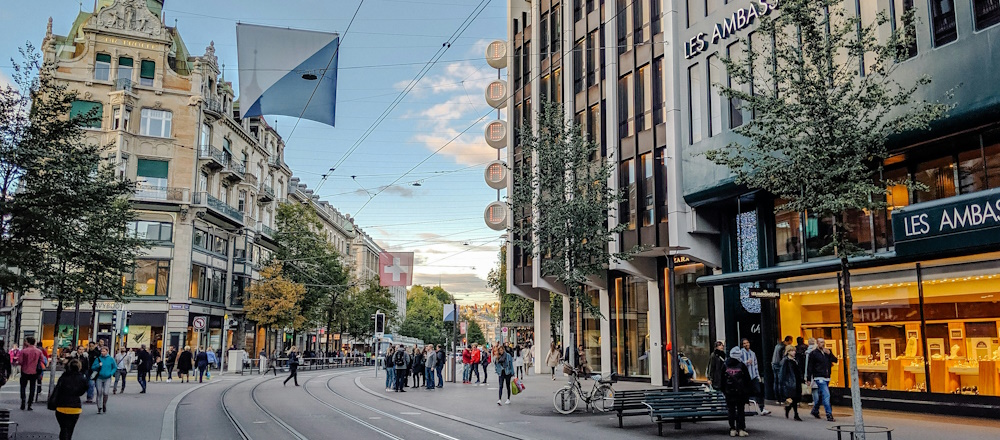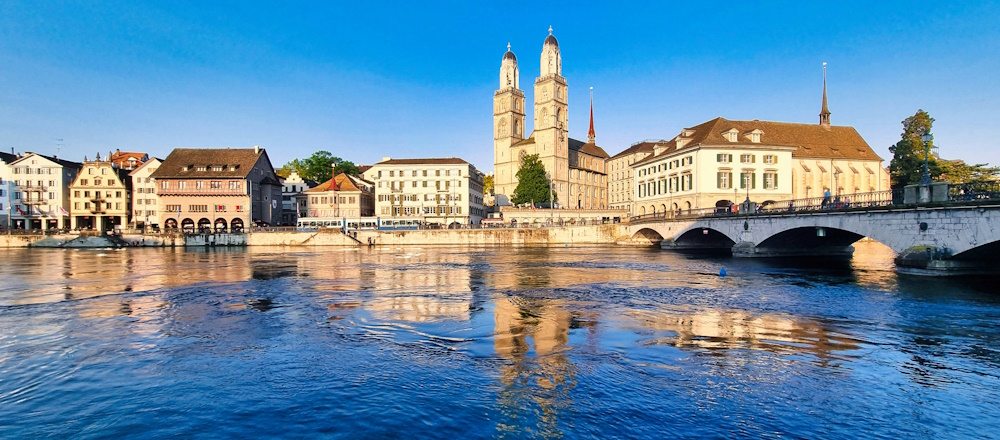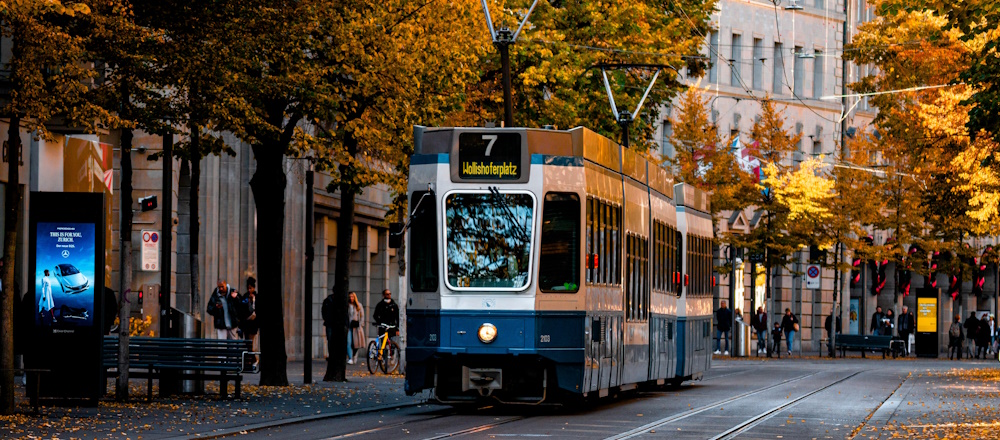Living in Zurich as an expat
Moving to Zurich feels like stepping into a postcard. Nestled on the northwestern shore of the stunning Lake Zurich, Switzerland's largest city draws ambitious professionals from around the globe. But Zurich's culture and infinitely picturesque scenery are drawcards in themselves.
Zurich is home to one of the world’s largest stock exchanges and is the country’s financial engine, but there’s much more to this beautiful Swiss city than commerce. The city is safe, has excellent infrastructure and one of the best public transport systems in the world, and consistently ranks as one of the best places to live in the world.
Living in Zurich as an expat means joining a diverse international community. The city attracts a skilled workforce and is a particularly popular destination for professionals in the financial services industry. Although money isn’t everything, it certainly helps, and you’ll likely earn an impressive salary in Zurich that is well above the global average.
Don’t fret too much about language barriers, especially in the workplace. English flows freely in business settings and professional environments throughout the city. Swiss German dominates everyday life, though, and picking up a handful of local phrases will open doors – especially with locals who might be reluctant to switch languages for casual conversation.
Working in Zurich
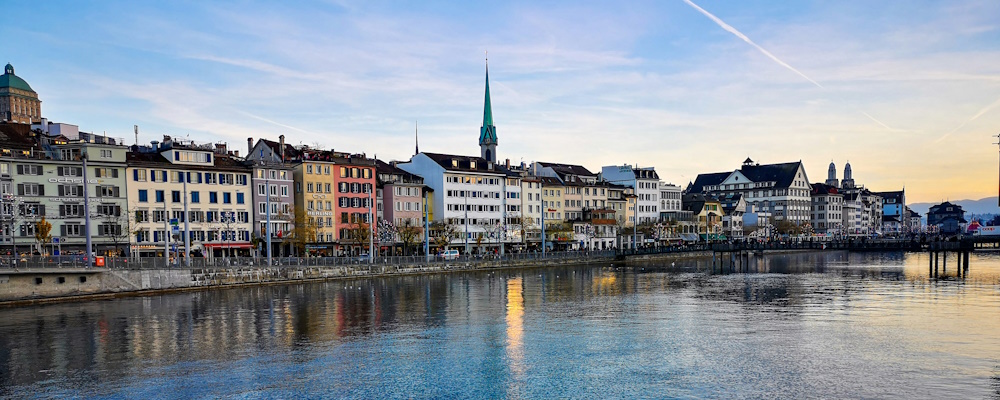
Working in Zurich offers excellent professional opportunities beyond just finance. While the banking, insurance, and financial services sectors remain strong pillars of employment, the city has seen remarkable growth in technology and research.
The work culture is professional, punctual, and values quality output, with the added benefit of a strong work-life balance. Most employees enjoy at least four to five weeks of annual leave, and flexible working arrangements have become increasingly common post-pandemic.
The job market can be competitive, particularly for English-only speakers. The finance, tech, pharma, and research sectors tend to welcome English speakers with open arms. Still, even basic Swiss German goes a long way in the job market – think of it as your secret weapon for standing out from the crowd of applicants.
Finding a Job and Working in Zurich
Visas and Residence Permits for Switzerland
Lifestyle in Zurich
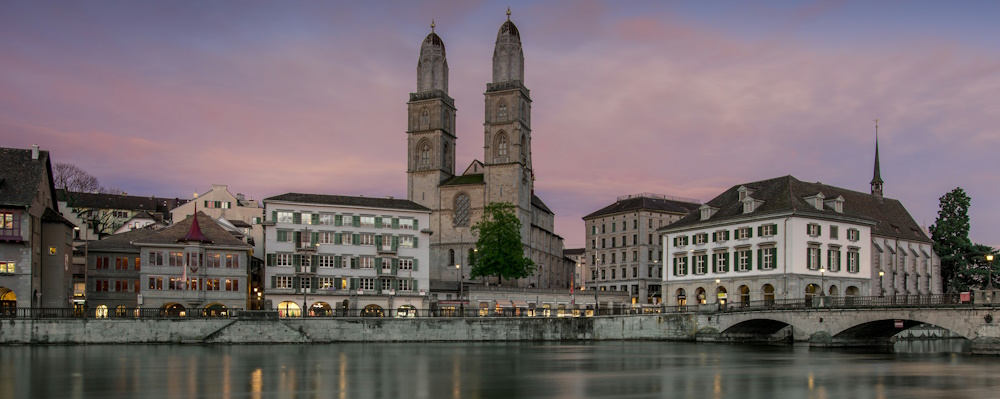
The lifestyle in Zurich is hard to beat – where else can you shop at world-class boutiques in the morning and swim in crystal-clear alpine waters by afternoon? The city centre features splendid shopping along Bahnhofstrasse, and the picturesque Old Town invites exploration with its winding streets and historic architecture. For outdoor enthusiasts, Lake Zurich and the nearby Alps provide year-round recreational opportunities, from swimming and sailing to hiking and skiing.
There’s plenty to see and do in Zurich. The city pays homage to its rich artistic and cultural history with around 60 museums and more than 100 galleries. You’ll enjoy strolling along the Limmat River that runs through the city, taking in the sight of boats whisking passengers along and the lights glinting off its surface. The medieval Old Town is a rich backdrop for contemporary fashion shops, bookshops, bars, restaurants, and clubs for all to enjoy.
Lifestyle, Shopping, and Attractions in Zurich
Finding accommodation in Zurich
Finding accommodation in Zurich is going to be one of the biggest challenges you’ll face when moving to this Swiss financial hub. Brace for a competitive housing hunt. Flat viewings can feel like attending an auction, with dozens of hopefuls vying for the same space. Your rental application needs to shine like a CV – perfect paperwork, solid financials, and glowing references.
Growth areas for new housing include Zurich North and gentrified Zurich-West, where luxury developments have become more prevalent. If city centre prices give you sticker shock, or you want a bit more space, consider some of the more popular lakeside villages.
Renting Accommodation in Zurich
Best Places to Live in Zurich
Cost of living in Zurich
The cost of living in Zurich is notoriously high, consistently ranking among the most expensive cities globally. As a tenant, you’ll need to budget for utilities and council taxes on rubbish disposal on top of your rent. Beyond housing, groceries will take a larger bite from your budget than you might expect.
The mandatory health insurance rule often shocks newcomers. Swiss law brooks no exceptions – every resident must maintain comprehensive coverage. Your salary might look impressive on paper, but remember that Switzerland's layered tax system (federal, cantonal and municipal) plus social contributions will take a healthy bite.
Living in Zurich with children
Living in Zurich with children means an exceptional quality of life in one of the world’s most family-friendly cities. The city's central, lakeside and hillside neighbourhoods all offer excellent schools, verdant parks and family-friendly facilities. You might be surprised at Swiss parenting norms, though – young children routinely walk to school unaccompanied, reflecting the local culture's emphasis on early independence.
Healthcare and Medical Insurance in Zurich
Finding a school in Zurich
Finding a school in Zurich offers plenty of options for your children’s education. Your children can attend Swiss public schools at no cost, but the language of instruction is typically Swiss German. The Swiss system has its own distinctive approach, notably delaying formal reading and writing instruction until children are around seven years old (Grade 1).
Bilingual education is increasingly available. For short-term expats, Zurich's 30-ish international schools are the perfect solution. These schools offer globally recognised curricula with Swiss standards and flair, featuring solid academics, ski trips in the Alps, cultural excursions and exciting social activities.
School and Education for Expats in Zurich
International Schools in Zurich
Getting around in Zurich
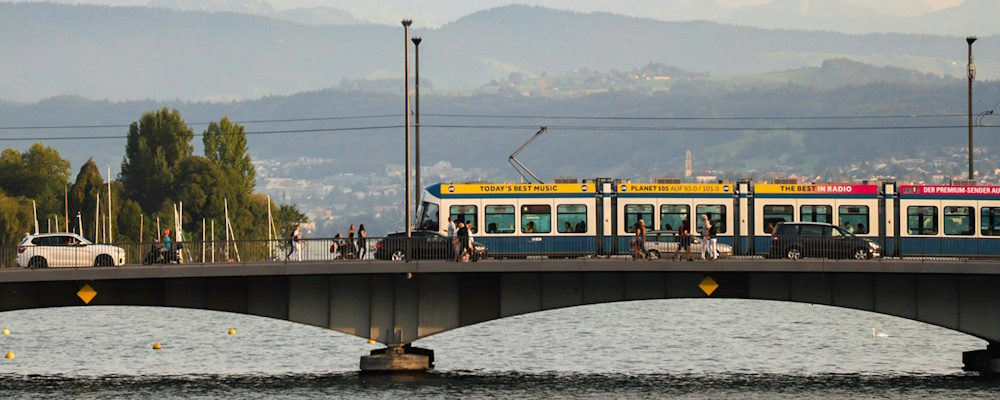
Getting around in Zurich couldn’t be simpler, thanks to its world-class public transport network. Sleek trams glide through the city centre, while buses, trains and even boat services connect every corner of the region. Leave your car behind – most expats simply won’t need it. The cycling scene is picking up speed too, with new lanes and facilities appearing regularly.
Public Transport, Driving and Driver's Licences in Zurich
Climate and weather in Zurich
The climate in Zurich is moderate and continental, with four distinct seasons and regular rainfall. Winter brings a genuine chill, its below-freezing days transforming the region into a wonderland. Summer has gloriously sunny days that are perfect for lake swimming. Regardless of when you visit, you’ll need versatile clothing – pack warm thermal layers for winter and swimming attire for summer lake activities.
With highly developed infrastructure, fantastic living standards and plenty of indoor and outdoor lifestyle options, Zurich has much to offer expats who can negotiate a good salary to get around its exorbitant living costs.
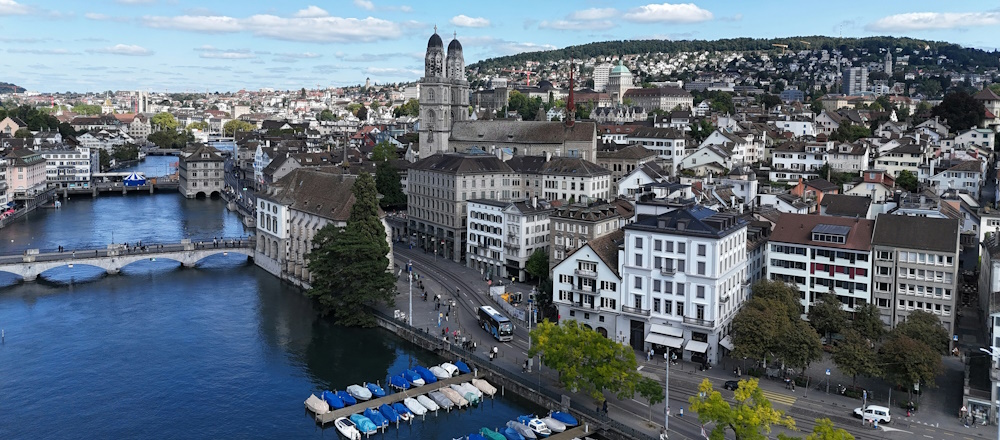

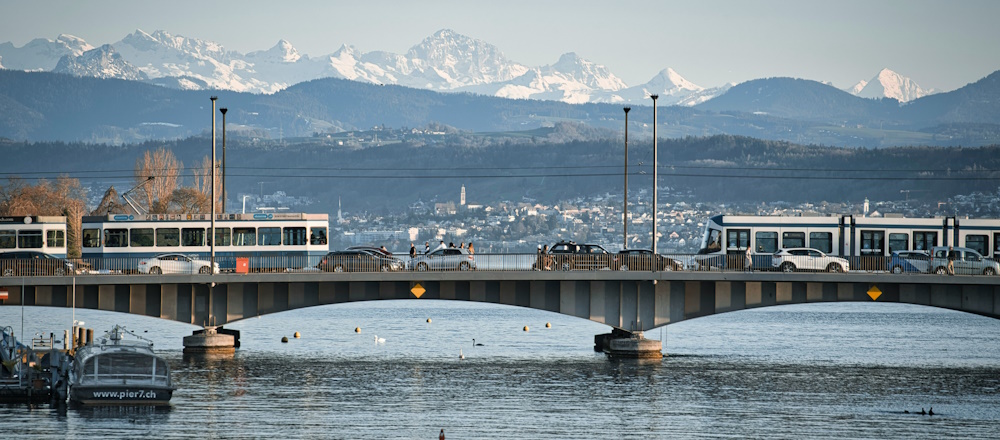





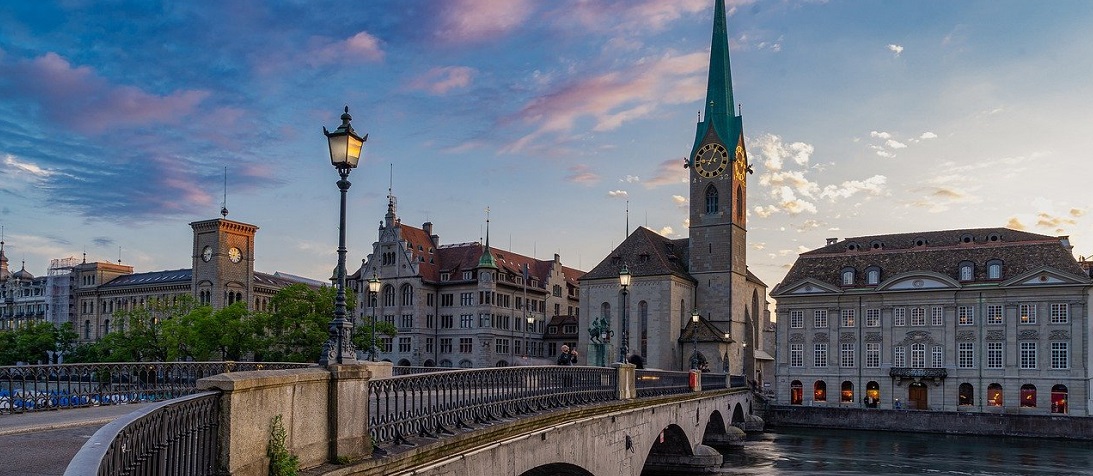
 Greifensee
Greifensee




